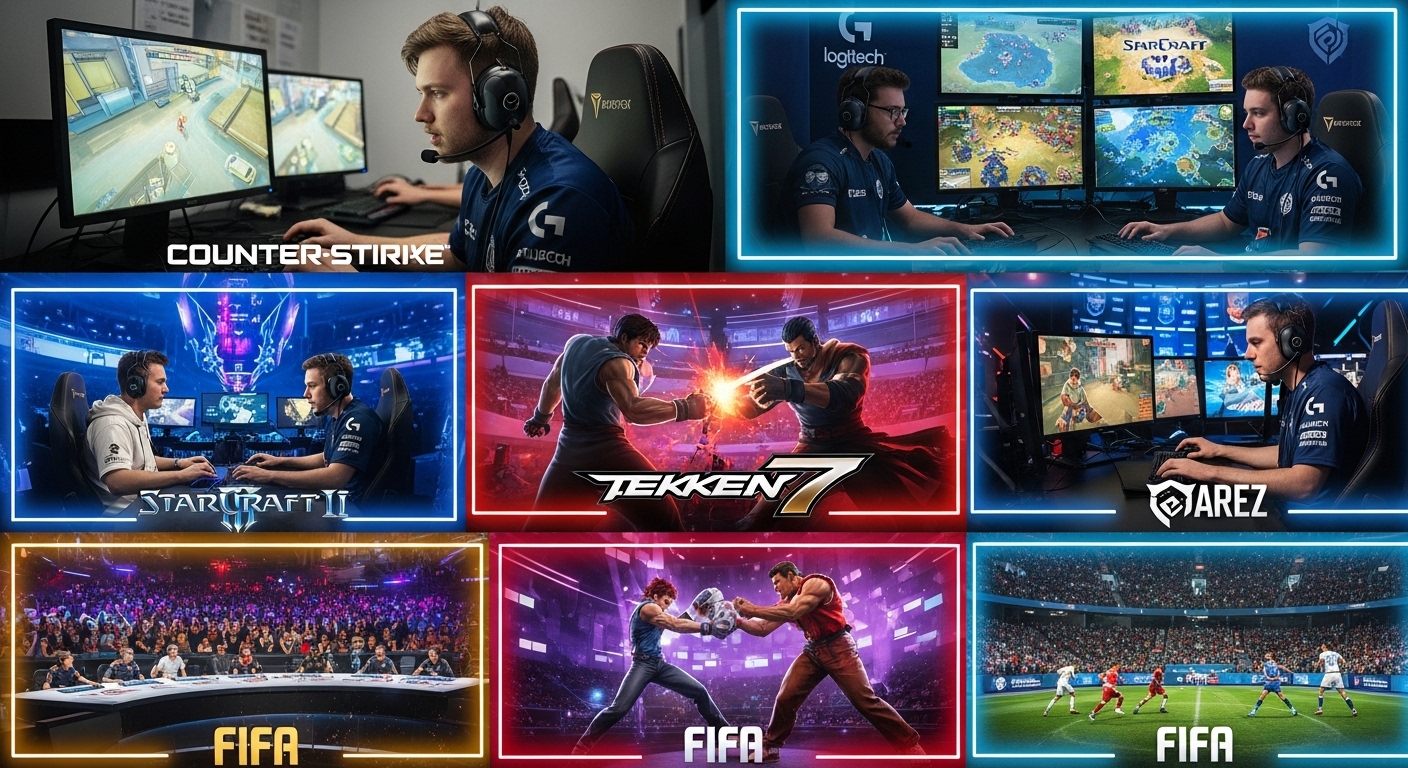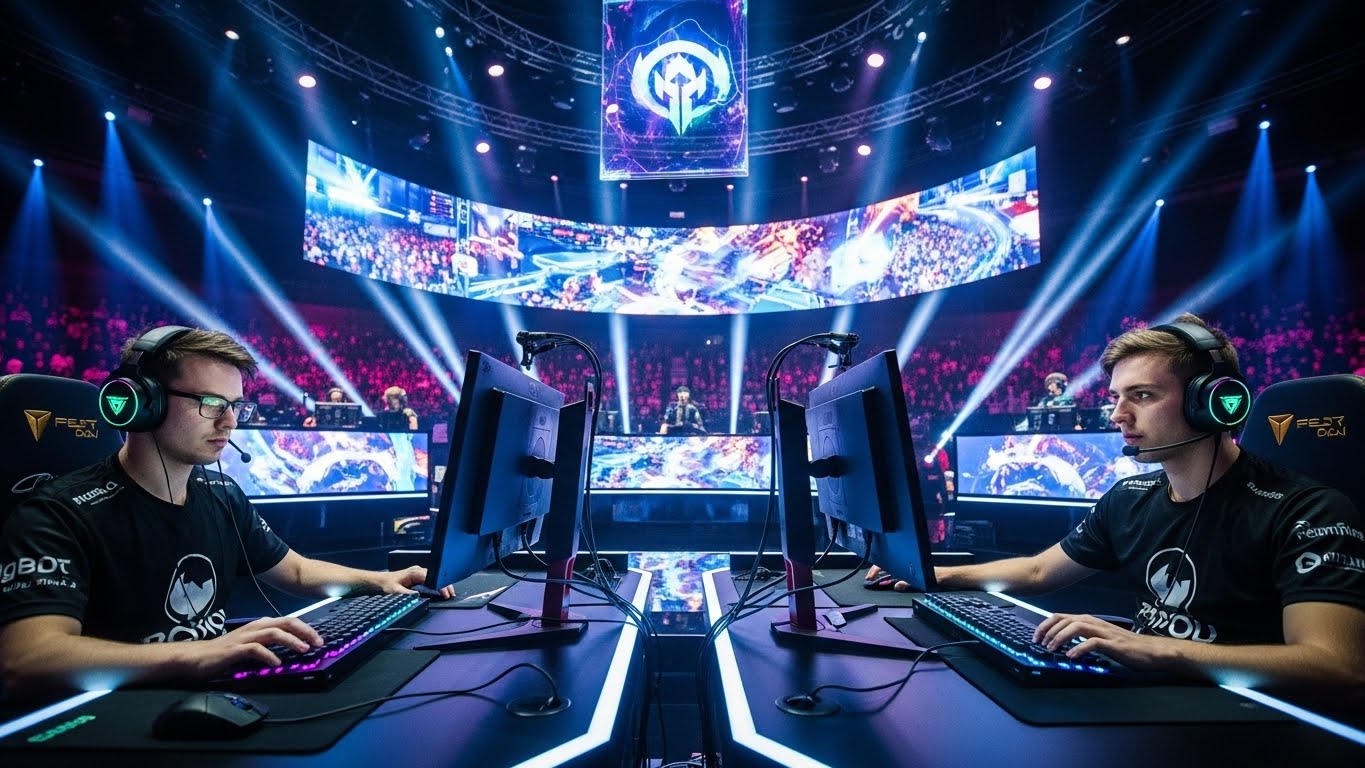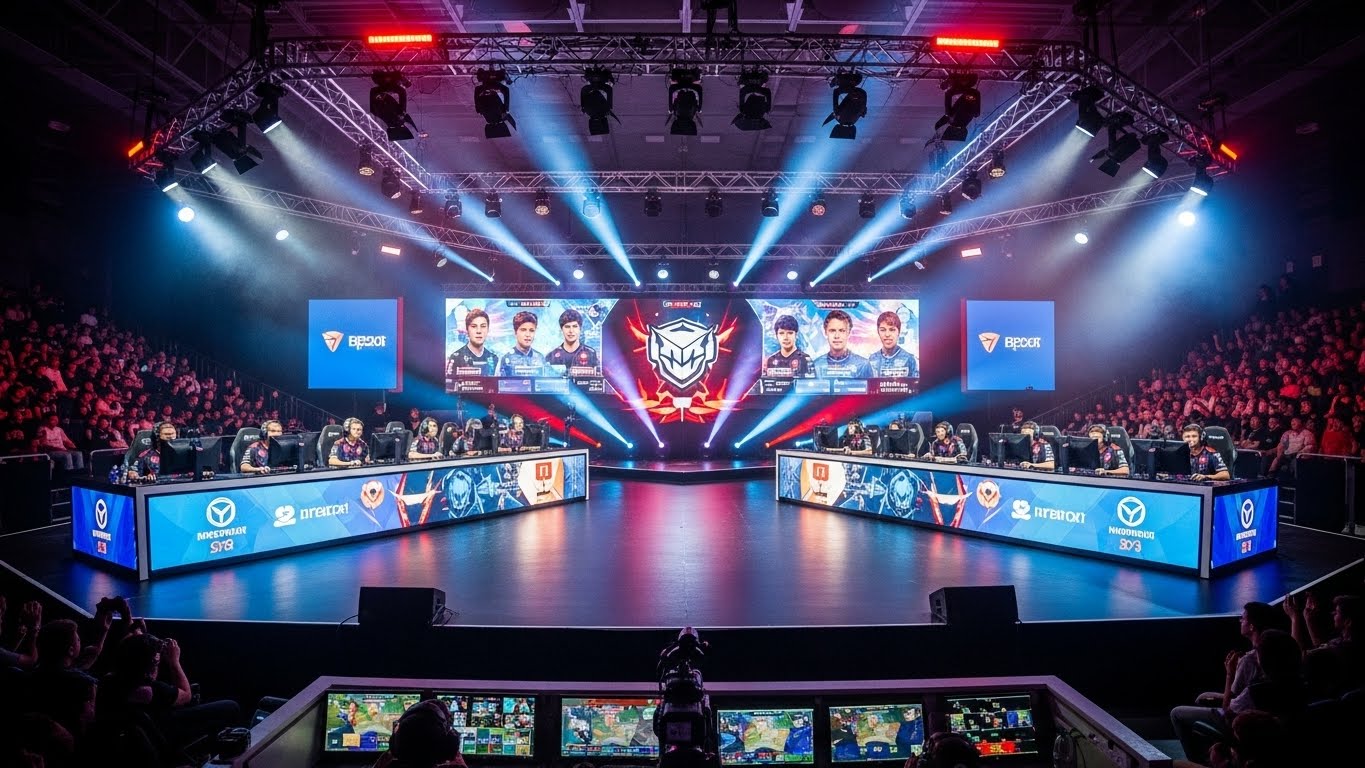Introduction: The Dawn of a Digital Sport
Esports, short for electronic sports, has grown from niche gaming competitions into a global cultural phenomenon. Once considered a pastime for enthusiasts in small gaming communities, esports now commands millions of viewers, multi-million-dollar sponsorships, and professional athletes who dedicate their lives to competitive gaming. This transformation reflects broader technological, social, and economic trends, showing how digital platforms have redefined entertainment and competition.
The rise of esports has created an industry with unique structures, diverse games, professional teams, and international tournaments. It combines strategy, skill, and spectacle, captivating audiences much like traditional sports. This blog explores the history of esports, its key titles, professionalization, fan culture, economic significance, technological influences, and future prospects.
The Origins of Esports: From Arcades to Online Arenas
Esports traces its roots back to the 1970s and 1980s, when early arcade competitions attracted local players vying for high scores. Titles like Space Invaders and Pac-Man introduced the concept of competitive gaming, although participation was limited to small communities.
The 1990s and early 2000s marked a turning point with the rise of online multiplayer games. Titles such as Quake, StarCraft, and Counter-Strike allowed players from different regions to compete virtually. The emergence of LAN (Local Area Network) tournaments provided structured competitions, while the growth of the internet expanded the scale and accessibility of these events. Competitive gaming began to attract spectators, laying the groundwork for the modern esports industry.
Key Esports Titles That Shaped the Industry
Certain games have become synonymous with esports due to their competitive balance, community engagement, and global appeal.
1. League of Legends (LoL)
Released by Riot Games in 2009, League of Legends is a multiplayer online battle arena (MOBA) game that has become one of the most prominent esports titles. Professional leagues like the League of Legends Championship Series (LCS) and the annual World Championship attract millions of viewers worldwide. Its strategic depth, team coordination, and dynamic gameplay have made it a benchmark for esports competition.
2. Dota 2
Developed by Valve Corporation, Dota 2 is another MOBA that has left a lasting mark on esports. Its annual tournament, The International, is famous for enormous prize pools that have reached over thirty million dollars. Dota 2 is celebrated for its complex mechanics, high skill ceiling, and community-driven competitions.
3. Counter-Strike: Global Offensive (CS:GO)
CS:GO is a first-person shooter that emphasizes strategy, teamwork, and precision. Its competitive scene is robust, with numerous professional leagues, majors, and regional tournaments. The game’s simplicity, yet deep tactical requirements, have made it one of the most enduring esports titles.
4. Fortnite
Epic Games’ Fortnite popularized the battle royale genre and brought esports to a wider audience, including younger players. Its competitive tournaments, like the Fortnite World Cup, offered large prize pools and drew mainstream media attention.
5. Overwatch
Blizzard Entertainment’s Overwatch combines team-based combat with hero-based mechanics. The Overwatch League introduced a city-based franchise system similar to traditional sports, elevating the professionalization and visibility of esports.
Professionalization of Esports: Teams, Players, and Leagues
Esports has undergone significant professionalization, resembling traditional sports in structure and operation. Professional players train extensively, often dedicating ten or more hours daily to improving their skills, understanding strategies, and coordinating with their teams.
Teams and Organizations
Professional teams are now franchises with structured management, coaching staff, analysts, and marketing departments. Organizations such as Team Liquid, Fnatic, and Cloud9 operate globally, signing players, sponsoring tournaments, and engaging with fans through content creation.
Leagues and Tournaments
Structured leagues and tournaments provide competitive stability. Examples include the League of Legends Championship Series, CS:GO Majors, and Dota 2’s The International. These events feature standardized rules, live broadcasts, and large-scale venues, making esports accessible and appealing to fans worldwide.
Player Lifestyle and Training
Professional esports players follow rigorous schedules, including mechanical training, strategic analysis, teamwork exercises, and physical conditioning. The industry has recognized the importance of mental and physical health, introducing wellness programs, psychologists, and fitness routines to prevent burnout and maintain peak performance.
Esports as a Spectator Sport
One of esports’ most distinctive features is its appeal as a spectator sport. Millions of fans watch live streams on platforms like Twitch, YouTube Gaming, and Facebook Gaming. Spectators engage interactively, participating in chats, sharing highlights, and supporting their favorite players and teams.
Commentary and Broadcasting
Casters and analysts provide live commentary, breaking down gameplay mechanics, strategies, and key moments. Their presence enhances the viewing experience, adding context and excitement, similar to traditional sports broadcasting.
Fan Engagement
Fan culture is a cornerstone of esports. Communities thrive on social media, forums, and content creation, celebrating victories, analyzing matches, and forming global networks of enthusiasts. Merchandise, fan art, and cosplay further strengthen community bonds.
Economic Impact of Esports
Esports is a multi-billion-dollar industry with diverse revenue streams. Sponsorships, advertising, media rights, ticket sales, merchandise, and in-game purchases contribute to its economic growth. Major tournaments, like The International or the League of Legends World Championship, feature prize pools worth millions, attracting top talent and global attention.
Corporate investment has surged, with traditional sports teams, tech companies, and media organizations entering the market. Universities now offer scholarships, esports programs, and competitive teams, providing career opportunities beyond playing professionally.
The esports ecosystem also stimulates related industries, including hardware manufacturing, game development, streaming technology, and digital content production. Its economic footprint continues to expand as the industry matures.
Cultural Influence and Global Reach
Esports has transcended regional boundaries, creating a global culture that unites players and fans across continents. South Korea, China, North America, and Europe are major hubs, each contributing to the competitive scene and shaping international play styles.
Esports challenges traditional notions of athleticism, demonstrating that strategy, teamwork, and mental agility are equally valuable as physical prowess. Professional players and content creators have become celebrities, influencing youth culture, fashion, and lifestyle trends.
Global tournaments foster cultural exchange, with fans learning about different countries’ strategies, communication styles, and player personalities. This cross-cultural connection has helped esports become a universally recognized form of entertainment.
Technology Driving Esports Growth
Technological advancements have been crucial to esports’ development. High-speed internet and powerful hardware enable real-time multiplayer gameplay. Streaming platforms provide accessible content, allowing fans to watch matches anywhere in the world.
Data analytics and artificial intelligence enhance competitive play, offering performance insights for players and predictive analytics for spectators. Virtual reality and augmented reality may further transform esports, creating immersive experiences for both players and viewers.
Game design also plays a critical role. Developers create balanced and competitive environments with spectator-friendly interfaces, ranking systems, and tournament modes, ensuring that esports remains engaging and fair.
Challenges Facing the Esports Industry
Despite its rapid growth, esports faces several challenges. Player burnout and physical strain are ongoing concerns due to intense training schedules. Issues of inclusivity and diversity remain, as female players and marginalized communities are underrepresented.
Regulatory challenges also exist. The absence of a global governing body results in inconsistent rules, tournament structures, and player contracts. Cheating, match-fixing, and intellectual property disputes occasionally threaten the integrity of competitions.
Maintaining fair play, promoting mental and physical health, and ensuring equitable access are critical for the long-term sustainability of esports.
The Future of Esports
The future of esports is bright, with continued growth expected in viewership, sponsorship, and professional opportunities. Emerging technologies, such as virtual reality, artificial intelligence, and blockchain, will likely enhance gameplay, training, and fan engagement.
Esports may increasingly integrate with mainstream entertainment, media, and education. Schools and universities will continue expanding esports programs, while traditional sports organizations invest further in competitive gaming.
With innovation, regulation, and community engagement, esports is poised to redefine entertainment, competition, and cultural interaction for generations to come.
Conclusion: Esports as a Cultural and Economic Force
Esports has evolved from niche competitions to a global phenomenon, rivaling traditional sports in popularity, professionalism, and economic impact. Technology, fan engagement, and strategic professionalization have transformed gaming into a career, an entertainment medium, and a cultural force.
Esports demonstrates that digital platforms can create complex, competitive, and emotionally engaging experiences. Its global reach, economic potential, and cultural influence continue to grow, making it one of the most significant developments in modern entertainment.
The rise of esports is not just a trend; it is a testament to the power of technology, creativity, and human skill converging in ways that redefine how people play, watch, and interact with games. The industry’s influence will likely expand further, shaping entertainment, careers, and cultural dynamics for years to come.



